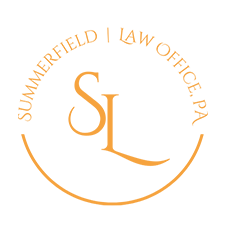If you’ve ever been through the probate process of a loved one’s estate, you probably don’t want to do it again. The lack of a thoughtful plan leaves many families in shambles, often resulting in broken relationships where family members no longer speak to each other.
Most people understand the importance of estate planning, but they often procrastinate until it is too late. This may be a difficult conversation, however, this is one area of your life where the worst decision is to do nothing; you should control the outcome. Don’t leave your family guessing about what should be done.
Probate is expensive and frustrating. And unfortunately, the lack of planning results in hurt feelings for those who are left to pick up the pieces. There are a few ways to avoid or minimize the probate process and we can help you navigate through some of these choices.
What is involved in a basic estate plan?
-
- A will. A will is a tool used to tell everyone where you want your assets distributed when you die. If you die without a will, there are State laws that determine where your assets go. If you have children from a previous marriage, these children are at great risk if you do not have a will or trust.
-
- A durable power of attorney. If you become legally incapacitated, a durable power of attorney allows another person to act on your behalf in legal, banking, property, and other matters that you can name. If you do not have a durable power of attorney, the court will appoint someone to handle personal care and finances through a process called guardianship. Guardianship can be avoided by having a durable power of attorney drawn up. Guardianship, like probate is expensive and time consuming.
-
- A living will/health care surrogate (often called a medical power of attorney). A Health Care Surrogate Designation is a legal document whereby you designate a person to make medical decisions should you not be able. It is also called a Health Care Power of Attorney. The Living Will, reflects your desire that you not be connected to the “machine” if you are brain dead or terminally ill, with no chance of recovery. Your spouse or family would have to bring the declaration to the hospital where two doctors would be required to verify that you are terminally ill with no chance of recovery, whereupon you would be disconnected from life-support machines.
The reason it has become part of the estate planning package is because it prevents a hospital from keeping you alive by artificial means if that is not your wish.
-
- A trust is a separate legal entity, like a company or another person. A trust allows you to put conditions on how and when your assets are distributed. A trust is also used to reduce your estate and gift taxes and offers privacy and protection from creditors, if set up properly.
A small estate can be easily planned by focusing on who will receive your assets after your death, and who should manage your estate, pay your last debts and handle the distribution of your assets. If your estate is large, there are various ways of preserving your assets for your beneficiaries and of reducing or postponing the amount of estate tax which otherwise might be payable after your death.
You have taken the important first step of inquiring about an estate plan. It is important that you complete the process. We will help you in any way possible and have checklists and other tools to assist you. Please call our office to schedule your appointment today.





